Get posts by email
Studying the World through Reading and Creative Play
June 28, 2010
My last "how we homeschool" report talked about early years math. I mentioned in that post you can learn all the typical school math in some ridiculously short period of time, if you're ready and motivated to do so. I knew David Albert wrote about that but couldn't find a reference. Well, David Albert himself, one of my favorite educational writers visited my blog and left the link. How cool is that, thanks so much David.
Now, let's talk history...
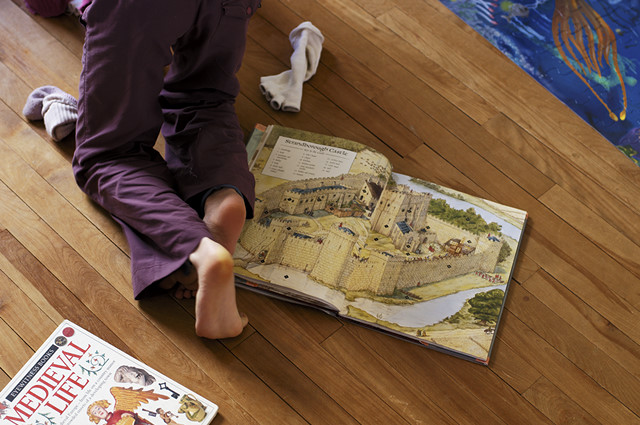
~~~
As interest led homeschoolers we don't have an overarching curriculum that we follow. We follow our interests.
From the time my kiddos were preschoolers we have been following our interests in studying history, cultures and geography. But because I find this separation of subjects quite artificial I lump it all together under the heading world study.
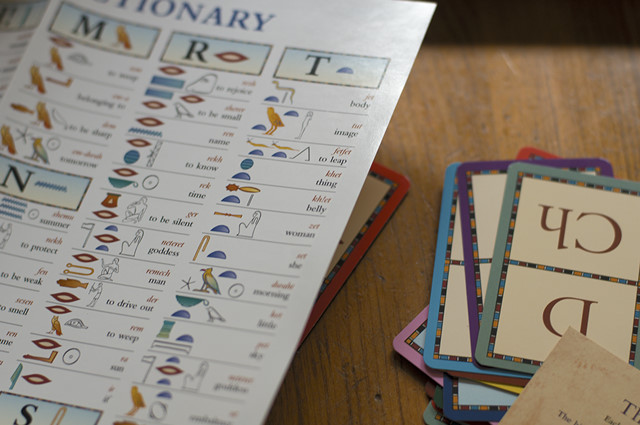
Of course it doesn't really matter what I call it except for the purposes of record keeping and year end assessments which I discussed in this post about portfolios.
World study has been one of the most natural and easiest parts of homeschooling. My children are learning so much in this area all the time that I find it hard to keep track of it all. Unlike their progression in reading, math and writing - which I am able to somewhat quantify, the amount they know and understand about the world around them is quite vast and continually surprises me.
I've noticed a general trend in how my children study and make sense of the world (in terms of history, geography and cultures). Because we don't follow a curriculum for these subjects I didn't set out to teach it this way, but this is how it has naturally evolved.
1. Reading
Reading is the foundation of our studies. Our seven and nine year old are not strong independent readers yet but I read to them most every day. And it's quite amazing how much of a story they can understand through "reading" picture books. Celine, who is eleven, has been reading since she was six and most of those books have been about world study.
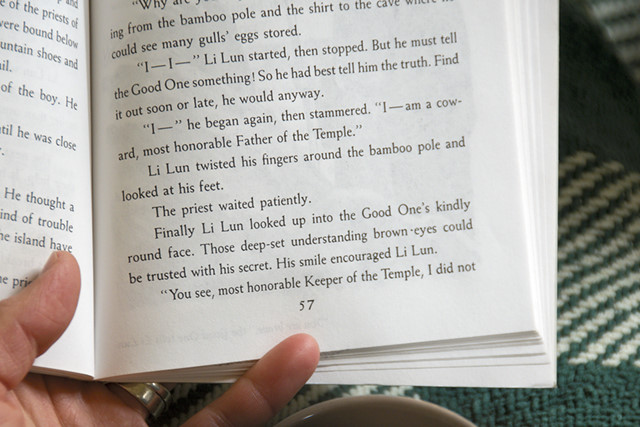
Living Books
Although we read all sorts of books, for the most part the kiddos and myself enjoy living books above any other form. What's a living book? You can read this post at Simple Homeschool about Charlotte Mason, who coined this term.By my definition a living book is first and foremost a quality story, fiction or non-fiction. It's a book that makes the subject matter come alive to the reader and engages their intellect and imagination. These are the kind of books we read. Not textbooks or books heavy on dates and facts, but good stories.
Choosing Good Books
- I let my kiddos choose books based on their interests. There is no required reading list in our house. Whatever their given interest (changes by day, week or month) I help them find good books to check out from the library. They can read about anything they want but I screen books for quality and age-inappropriate material.
- I supplement their reading interests with books I'd like to expose them to. These are books we read aloud together and I also add selections to Celine's individual reading stack. Celine does not have to read what I choose but often will when she runs out of books she has chosen for herself.
- We do own a small shelf of reference books; Usborne, Scholastic, Kingfisher and the like to provide the facts, dates and often illustrations to what we've read about in our living books. The kids love these books though we don't use them as textbooks or required reading.
For world study book recommendations please see my world study shelf at Goodreads.com. It has hundreds of titles we've read aloud together or that Celine has read on her own. I've recently started dividing them up by geographical area and time periods. Feel free to snoop around a bit in my "bookshelves".
I like the Sonlight Catalog for finding titles. Click here to order one for yourself. I don't use the curriculum but find their book lists very helpful. One book, or books, that I have not found helpful is the highly acclaimed Story of the World series. Not story enough for my kids (or myself either). This go-around (fall 2010) is a different story. We are all enjoying the first book of the series, Volume 1: Ancient Times. Fall 2012 update: Started Volume 2: The Middle Ages.
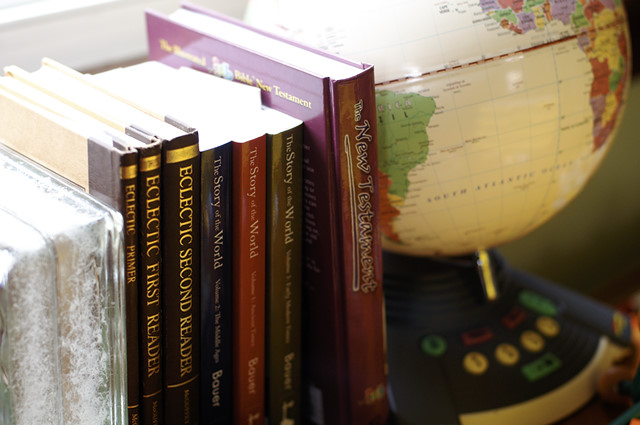
2. Hands-On & Real Life
What good is it to learn something if it doesn't impact your daily living or how you view and interact with the world?
I contend you don't actually "learn" something unless this internalization happens. Whereas reading is a "head game", the real life stuff we do to study the world is what really gives those ideas life.
Community - Community involvement and accessing resources in our own town and neighborhood is so imortant. This is history and cultural study the kids can readily identify with. Museums, historical societies, local galleries and music, roadside graveyards even - are all local resources to learn the history, culture and geography of our back yard.
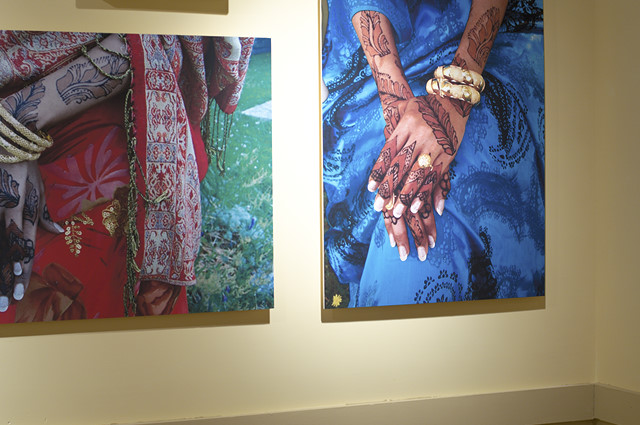
One of our most recent trips was to the local museum to learn about the history of the manufacturing that our town was built around, the immigrants who built those industries and the recent immigrants and refugees to our area who are once again changing the cultural identity of this area. Fascinating stuff.
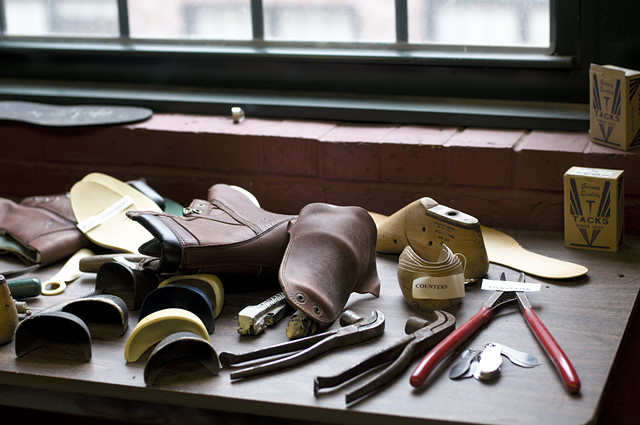
Travel & Adventure - Our children know a lot about the geography of Maine from our weekend hikes and jaunts around the state. We are not the kind of family to stop and read every landmark and quiz the kids on what they've learned about our state. They learn by being a participant in our weekly outings and by touching the very ground with their feet, so to speak.
They also learn about the world by meeting people from other places, both near and far. This is one reason we open our home to friends and strangers whenever we have a chance to do so.
As our kids get older we plan to travel further afield with them and we want them to be comfortable with adventure and exploration and encourage their own world travels once they graduate. For those of us not able to venture very far Heidi wrote a great post on learning geography at Simple Homeschool. Also, Jena just posted how to study your favorite country.
I should confess we don't do much map study or other geography workbook stuff. My kids will go through phases when they study the globe intently, which they all did recently and I hope they remember learning something about the continents and oceans but if not, oh well. They've got lots of time. They'll pick it up later when it becomes important to them again.
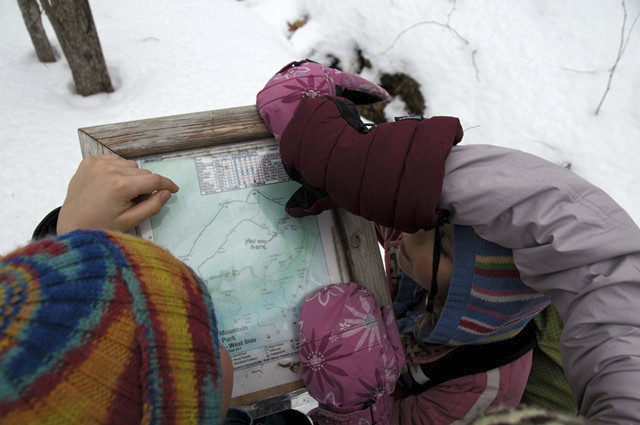
And timelines are just lost on our family, none of us are real date junkies. Just tell us a good story. Now at Celine's age (eleven) we're starting to really research dates to round out our understanding of something we've read. And most often it's to satisfy my curiosty, more than the childrens'.
3. Design & Play
I'm not which comes first the reading or the play but somewhere in the process of internalizing what they've read, experienced or heard about my kids like to play it out.
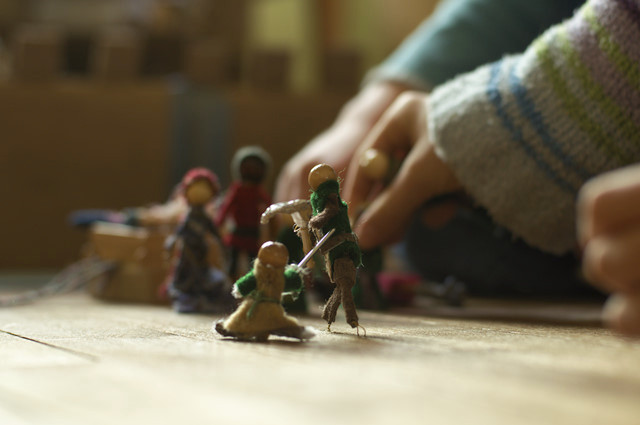
Here's a few things off the top of my head they have done with play and design.
- Make figurines of ancient Egyptian Pharoah's court, complete with scantily clad (ahem) "entertainers".
- Play spin the globe for fun and try to sound out the countries and remember the continents
- Construct elaborate houses and dwellings from various time periods through history, most notably Celine's victorian doll house and a medieval castle.
- Build bows and arrows and hunt for game.
- Dress up as samurai, pirates and medieval ladies.
- Sew dolls and accompanying outfits according to different time periods.
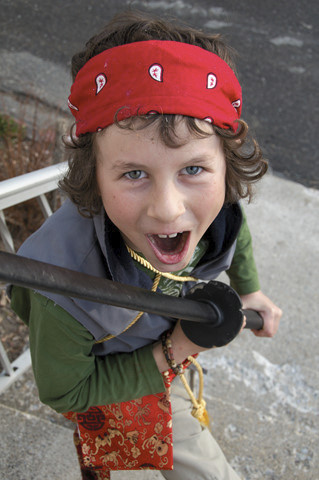
State of our Union
This year to round out my kiddos interests a bit I sought out books on the Eastern Hemisphere. An area their own interests haven't led them to study yet.
Using the Sonlight catalog I found quality books and borrowed these from the library to augment their own eclectic and diverse interests. Interests that are, quite literally, all over the map. In addition we watched appropriate video documentaries on asian culture, geography and history.
This has broadened our horizons significantly and I for one was happy to learn about something other than ancient Rome, ancient Egypt and pioneer life. Over the years we've read books that have touched on each continent and have taken us through many periods of history. This past year our family has studied:
- Medieval Europe (always - it's Celine's main historical interest)
- Ancient Egypt
- Samurai and Asian martial arts
- dogs and cats - you'd be amazed at how much geography and history you learn studying animal breeds
- Victorian England
- North American Natives
- Switzerland, inspired by a visit with Swiss travelers
- Mars and space travel (or this science?)
- Colonial and Revolutionary period United States

St. Patrick's Day study
In years past we've studied:
- Ancient Rome
- Marco Polo's travels
- Vikings
- Pioneers and settling western North America
- New England/Canadian Maritimes
- Seafaring history
And those are just brief lists.
I have no worries that I'm raising historical and geographical illiterate children, in spite of never coloring in a map. We learn something new about the world each and every day.
How do you teach your kids about world history, geography and cultures?
Filed Under
Resource Library
-

Alisha on June 28, 2010, 6:22 p.m.
Great post, Renee! I need to go back and re-read the math one, too.
I also use the Sonlight catalogs to get booklists! I can't afford their stuff right now, but I like the books they pick. And I found a neat book a couple of years ago, you probably already have it, but it's called Material World. My kids have loved it and I bet yours would, too, if you don't already have it.
I love how you guys school. :) It's just great.
-

Claudia on June 28, 2010, 10:41 p.m.
Renee, you always post on the most timely subjects!
History and geography are two of my son's favorite subjects, and what he most wanted to continue studying this summer. We've already studied several countries, ranging from Haiti to Egypt (modern and ancient), to mythical Atlantis and currently Korea (South and North). Each country naturally leads to other areas of interest (communism now, with talking about North Korea)and it's always exciting to see what direction we'll go next. It is interest led learning at its best.
Somehow I got the idea that I "needed" to "teach" history next year beginning with prehistory and going forward in a "classical" way. It makes sense to me in a way to learn history in this fashion, but it stresses me out that by doing so we'll lose the ability to follow his natural interests (plus he has no interest right now in prehistory). Your post today is the reminder that I need to put the book aside and take my cues from him instead. At only 7, he has lots of time to put the pieces of timelines together. For now, it should be all about the real love of learning and exploring, even if we're jumping all around the globe.
-

daffodil lane on June 29, 2010, 12:49 a.m.
Brilliant, Renee! I piece our homeschooling together also based on what the children are interested in as well as what I am interested in (makes for a better experience if I am interested!). Your "World Study" is perfect! I am going to include that in our learning plan (for our partnership to receive funds) instead of having four different categories. So smart! You just saved me a bunch of work. Thank you! I have so much in that area too, it is quickly becoming a favorite around here. Hope your summer is going well!
-

Kika on June 29, 2010, 1:43 a.m.
I feel that this is a weak area for me - I've kind of had a helter skelter approach... we studied ancient history but not necessarily in order b/c my son had been fascinated with the middle ages so we began there; we've studied issues/events that feel close to my heart like slavery, civil rights movements, african-canadian history; we've read all sorts of historical fiction and some biography that has led to interesting discussions and further investigation at times; we've done some map puzzles and coloring maps b/c my daugher likes these; my son studied a bit about the world wars this year: key players, causes, etc., because he wanted to know more....oh, and they usually have done at least one report or lapbook on a country of choice/year. We try and remain aware of current events and are involved in our community. This year I aim to be a bit more organized in this area: I'd like to approach things from the perspective of learning about a handful of people who stood up for human rights/against injustice (ex. Corrie Ten Boom, Nelson Mandela...) and as we read about them we will also learn more about the geography of their nations and continents, about historical and current issues they've faced... I don't have it all worked out yet (that's what the summer is for?!) but I have this gut feeling it is going to be good for us. Oh yes, and I hope to throw some relevant movies into the mix. The idea is not only to learn more about our world but also be inspired by leaders past and present and challenged to do more in our own backyard.
And, by the way, how cool to have David Albert respond on your blog!!!
-

Granola Girl on June 29, 2010, 7:31 a.m.
Unfortunately, unlike you kiddos, mine has no desire what so ever to act anything out or read fiction. Sometimes this is frustrating. He has no interest in "stories" unless they are highly fantastical (wizards, ninjas, pirates). This has lead to more rigid learning for lack of a better word.
We hike our way through Geography and land forms, though languages play a big part too.
He has loved maps since he was dinky, especially since we hike so much with him and require he learn to navigate. We have focused on the compass and getting a mental pictures so he can tell at most any time which direction we are driving or walking. He gets to start topographical maps this summer.
We have hiked sections of the AT, plan on doing the Colorado Trail within the next two years, and the PCT within the next 5. Yosemite, Zion and the Grand Canyon, as well as the Tetons are on our road trip lists for summers back to Georgia.
Clouds, natural land forms and geological formations are discussed when we hike. Flora and Fauna differences go in their too. He likes to identify stuff and then we talk about ecosystems, rainshadows, and stuff.
The Barracuda LOVES languages. He is doing really well in Spanish right now and loves talking to people all over the community when he recognizes their accent or the language. He is trying to decide which language he wants to learn next since I told him after two years of Spanish he can pick another one if he wants. We plan on hiking across Spain when he really has a mastery of the language in a couple years.
Mainly we ask him what he wants to see and if we can go see it we will. My mother is teaching in Dubai, United Arab Emirates. My cousin lives in New Zealand. They have both offered to allow us a place if we want to visit and hike those parts of the world for a summer or longer.
-

Francesca on June 29, 2010, 10:38 a.m.
Great post, and very interesting comments!
-

Twisted Cinderella on June 29, 2010, 12:17 p.m.
I am finding that more and more, I have an eclectic approach that is planned but leaning towards her interests. It is a lot of fun to learn this way.
-

Naomi Kilbreth on June 29, 2010, 4:27 p.m.
Your posts are always such great resources! The kids and I have really been enjoying our more frequent trips to the library. Nemo actually threw a massive tantrum this summer when we got there and realized it was closed. Oops! My mistake, but I made up for it and took him later that week. Animal stories have been at the top of our list right now (got to love James Herriot!), but we've also enjoyed reading stories about fire trucks, planes, and other things that go. Reading is so much fun!
-

nicola@which name? on June 30, 2010, 6:51 a.m.
Wow! Wow, this is an incredible post. You are such a wonderful wealth of information and so willing to share. I imagine how much time this post took. Thank you. Nicola
-

renee on June 30, 2010, 11:14 a.m.
Thanks Nicola. Making homeschooling accessible and easy to understand for other families is important to me. I want to encourage other families to try it and feel it is doable.
Also, I am using these homeschooling posts as my year end summaries for our portfolio review coming up in August.
-
-

Tammy on Aug. 5, 2011, 6:45 p.m.
What books would you recommend for a kindergartener 5 1/2 years old for me to read to her. She loved Little House in the Big Woods and Heidi. Please email me if you can. Thanks.
-

cybola on Jan. 29, 2016, 1:28 a.m.
This blog was... how do you say it? Relevant!! Finally I've found something which helped me. Thanks! cybola.loveslife.biz
-

cybola on Feb. 1, 2016, 1:59 a.m.
Good info. Lucky me I ran across your site by accident (stumbleupon). I have saved as a favorite for later! cybola.my-board.org
-

gambling on March 10, 2016, 2:23 a.m.
You love watching Casino? click our website and watch casino or play casino online without registration this is 100% free. What are you waiting we offer bonuses. Gambling
You can subscribe to comments on this article using this form.
If you have already commented on this article, you do not need to do this, as you were automatically subscribed.






Jill Foley on June 28, 2010, 2:31 p.m.
Great post Renee...
We sponsor quite a few children through Compassion International. I have a world map up in our living room, with the children's pictures next to their corresponding country. When we get letters from the children, we point to the map and talk a bit about the country, continent, etc. We also write back, asking questions about their country. So we are learning from our sponsored children!
We also check out a wide variety of books from the library. We've started picking a country to focus on for a couple weeks, then end the "study" with a meal from that country. When we did China, we ate dinner at a couple's house from our church who were missionaries in China for 12 years. It was great listening to their stories and learning more about the country through them. And even though that particular focus has switched to a new country, we still pick up books about China at the library to learn more and reinforce what we learned.
My husband and I also each have our own opportunities to travel to different countries for mission work this year. I am going to Peru and he is going to Haiti. These opportunities will also open many doors to learning for the entire family!
As for learning about our own country, our family, like yours, experiences the geography firsthand through outdoor adventures every weekend. We hike through the rainforests of Oregon and Washington, walk through the high deserts, sail along the river and stroll along the coast. We have had the opportunity to live in 4 states during the last 5 years and have experienced Vermont, Minnesota, Michigan's UP and now the pacific Northwest.